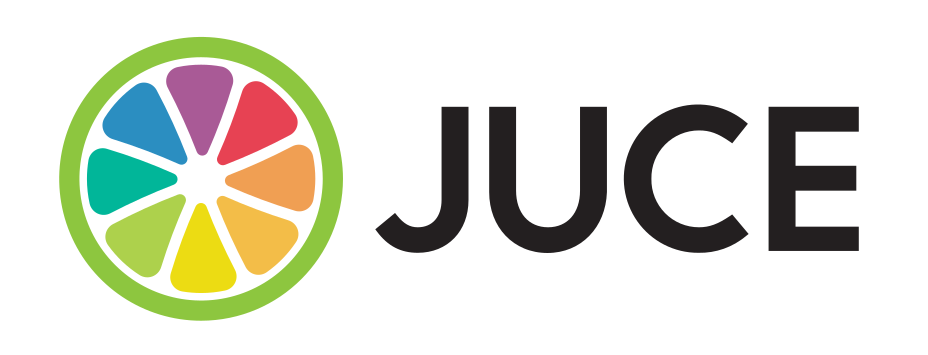JUCE is an open-source cross-platform C++ application framework for creating high quality desktop and mobile applications, including VST, VST3, AU, AUv3, AAX and LV2 audio plug-ins and plug-in hosts. JUCE can be easily integrated with existing projects via CMake, or can be used as a project generation tool via the Projucer, which supports exporting projects for Xcode (macOS and iOS), Visual Studio, Android Studio, Code::Blocks and Linux Makefiles as well as containing a source code editor.
The JUCE repository contains a master and develop branch. The develop branch contains the latest bugfixes and features and is periodically merged into the master branch in stable tagged releases (the latest release containing pre-built binaries can be also downloaded from the JUCE website).
JUCE projects can be managed with either the Projucer (JUCE's own project-configuration tool) or with CMake.
The repository doesn't contain a pre-built Projucer so you will need to build it for your platform - Xcode, Visual Studio and Linux Makefile projects are located in extras/Projucer/Builds (the minimum system requirements are listed in the System Requirements section below). The Projucer can then be used to create new JUCE projects, view tutorials and run examples. It is also possible to include the JUCE modules source code in an existing project directly, or build them into a static or dynamic library which can be linked into a project.
For further help getting started, please refer to the JUCE documentation and tutorials.
Version 3.15 or higher is required. To use CMake, you will need to install it, either from your system package manager or from the official download page. For comprehensive documentation on JUCE's CMake API, see the JUCE CMake documentation. For examples which may be useful as starting points for new CMake projects, see the CMake examples directory.
To use CMake to build the examples and extras bundled with JUCE, simply clone JUCE and then run the following commands, replacing "DemoRunner" with the name of the target you wish to build.
cd /path/to/JUCE
cmake . -B cmake-build -DJUCE_BUILD_EXAMPLES=ON -DJUCE_BUILD_EXTRAS=ON
cmake --build cmake-build --target DemoRunner
- macOS/iOS: Xcode 10.1 (macOS 10.13.6)
- Windows: Windows 8.1 and Visual Studio 2015 Update 3 64-bit
- Linux: g++ 5.0 or Clang 3.4 (for a full list of dependencies, see here).
- Android: Android Studio on Windows, macOS or Linux
- macOS: macOS 10.7
- Windows: Windows Vista
- Linux: Mainstream Linux distributions
- iOS: iOS 9.0
- Android: Jelly Bean (API 16)
Please see our contribution guidelines.
The core JUCE modules (juce_audio_basics, juce_audio_devices, juce_core and juce_events) are permissively licensed under the terms of the ISC license. Other modules are covered by a GPL/Commercial license.
There are multiple commercial licensing tiers for JUCE, with different terms for each:
- JUCE Personal (developers or startup businesses with revenue under 50K USD) - free
- JUCE Indie (small businesses with revenue under 500K USD) - $40/month or $800 perpetual
- JUCE Pro (no revenue limit) - $130/month or $2600 perpetual
- JUCE Educational (no revenue limit) - free for bona fide educational institutes
For full terms see LICENSE.md.
The JUCE framework contains the following dependencies:
- Oboe (Apache 2.0)
- FLAC (BSD)
- Ogg Vorbis (BSD)
- CoreAudioUtilityClasses (Apple)
- AUResources.r (Apple)
- LV2 (ISC)
- pslextensions (Public domain)
- VST3 (Proprietary Steinberg VST3/GPLv3)
- zlib (zlib)
- Box2D (zlib)
- jpeglib (Independent JPEG Group License)
- pnglib (zlib)
- GLEW (BSD), including Mesa (MIT) and Khronos (MIT)
The JUCE examples are licensed under the terms of the ISC license.
Dependencies in the examples:
Dependencies in the bundled applications:
Dependencies in the build system:
